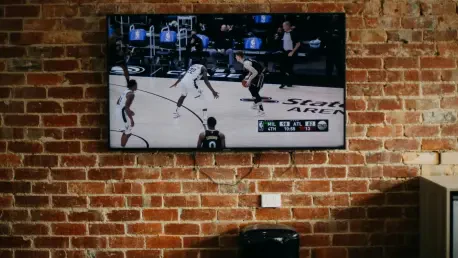In today’s fast-paced telecommunications landscape, seasoned expert Vladislav Zaimov joins us to shed light on a pressing issue—the proposed acquisition of Fubo by Disney. With a background in enterprise telecommunications and network risk management, Vladislav offers a unique perspective on the implications of this significant industry development.
What specific antitrust concerns has the DOJ raised regarding Disney’s proposed acquisition of Fubo?
The DOJ’s primary concern revolves around market concentration. The acquisition could potentially reduce competition by giving Disney excessive control over sports streaming services. This might lead to increased pricing power, limiting consumer choices and potentially driving up costs.
How has Senator Elizabeth Warren’s letter influenced the DOJ’s decision to investigate the Disney-Fubo deal?
Senator Warren’s letter seems to have been a catalyst for the investigation. Warren questioned the deal’s potential to violate antitrust laws, particularly in terms of market dominance and consumer pricing. Her urging likely increased scrutiny and prompted the DOJ to consider the broader implications of the acquisition.
Can you explain the details of the proposed agreement between Disney and Fubo?
The agreement involves combining Fubo with the Disney-owned Hulu + Live TV service. This also includes settling a lawsuit that Fubo had against the Venu Sports joint venture. Financially, Fubo stands to gain $220 million, plus a $145 million loan commitment from Disney for 2026, which is designed to support a new Sports & Broadcasting tier.
What was the outcome of Fubo’s lawsuit against the Venu Sports joint venture?
The outcome was essentially a settlement that favored Fubo. By settling, Fubo could focus on merging its services with Disney’s properties, effectively simplifying operations and enhancing its market position without the overhead of ongoing legal disputes.
How will the deal potentially benefit Fubo financially?
Fubo is set to receive a substantial financial injection—specifically, $220 million. This financial support not only alleviates immediate pressures but also positions Fubo well for future investments and expansions, especially in the sports broadcasting arena.
Could you elaborate on how this agreement might change the landscape for sports streaming services?
This merger might streamline options for consumers but could also diminish competition. As Disney consolidates its services, it could lead to a more concentrated market. This might result in fewer players and standardization in pricing and content availability, reshaping how consumers access sports content.
Why does Disney see value in merging Hulu Live TV with Fubo?
Disney likely sees strategic value in creating a robust sports offering through this merger. By combining with Fubo, Disney can enhance Hulu’s service with diverse sports content, potentially attracting more subscribers and strengthening its position in the streaming market.
What impact has the news of the DOJ investigation had on Fubo’s stock price?
The investigation announcement caused a slight dip in Fubo’s stock, reflecting investor uncertainty. This reaction is typical when potential regulatory hurdles arise, as such investigations can delay deals and affect future profitability projections.
How does DirecTV’s MySports bundle compare to the new offerings of Disney and Fubo?
DirecTV’s MySports emphasizes a variety of national and local channels, potentially offering broader coverage. However, the Disney-Fubo collaboration might offer more specialized sports content through ESPN+, which could draw fans of major leagues and events.
What are the strategic goals behind Disney launching its flagship ESPN service under the DTC model?
Disney aims to directly engage viewers without intermediaries by launching ESPN as a direct-to-consumer service. This model can enhance customer loyalty and generate more precise audience data, which is invaluable for tailored content and ads.
How does the emergence of new sports-focused packages affect traditional sports TV packages?
These new packages signify a shift towards more flexible, consumer-friendly options. As a result, traditional cable packages may become less appealing if they can’t adapt to the demand for customizable, internet-based sports viewing solutions.
How did Bob Iger justify the redundancy of the Venu joint venture?
Bob Iger cited the rise of more efficient, streamlined bundles as the reason for Venu’s redundancy. As consumer preferences shifted towards these leaner packages, maintaining the Venu venture became less justifiable in light of new strategic directions.
Can you provide some background on why Venu was initially created and what its goals were?
Venu was established to consolidate sports streaming rights under one joint venture, aiming to optimize distribution and revenue sharing among involved parties. Its goal was to streamline content delivery, but changing market trends made it less effective over time.
How might this deal influence Disney’s approach to streaming and broadcasting rights in the future?
If the deal proceeds, Disney might double down on acquiring content specifically tailored to digital platforms. With more experience consolidating services, Disney would likely focus on securing exclusive sports rights to remain competitive in the ever-evolving streaming sector.
What are some potential consumer impacts if the deal between Disney and Fubo goes through?
Consumers might see some benefits, such as more integrated access to sports networks. However, they could also face higher subscription costs due to reduced competition. Additionally, this consolidation may result in fewer service providers, impacting choice and flexibility in sports content consumption.









